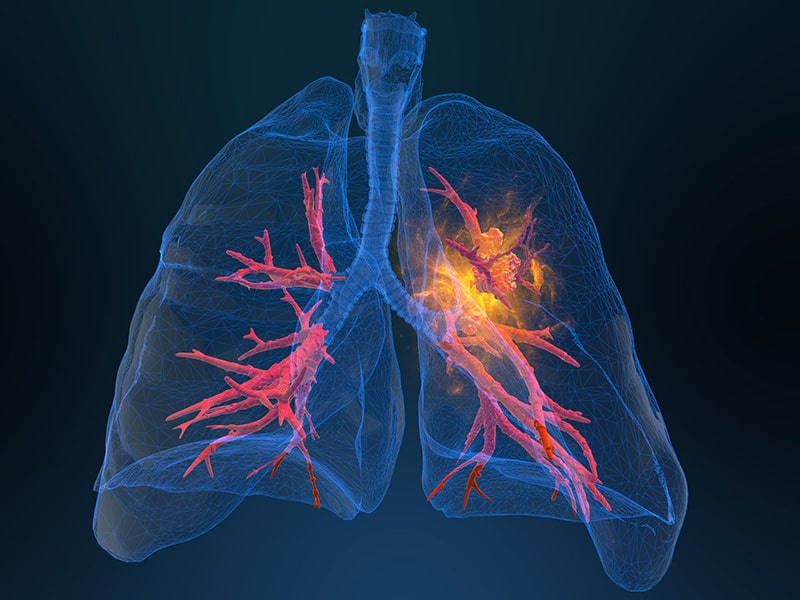As with all cancers, the growth of tumours in the lung is as a result of an abnormal / defective growth of cells outside of the normal cell life-cycle. Whilst there are many different types of lung cancer, the two main types are non small cell lung cancer (NSCLC), and small cell lung cancer (SCLC) which spreads more quickly and is often at a more advanced stage when diagnosed.
Anyone can develop lung cancer. Although the large majority of cases occur in people who smoke or used to smoke, the incidence of lung cancer in those who have never smoked is dramatically rising, for reasons which are not yet completely clear. In the UK, recent data shows that the proportion of non-smokers undergoing surgery for lung cancer jumped from 13% to 28% from 2008 to 2014. Amongst smokers, according to the British Lung Foundation, if you stop smoking, the risk does reduce over time. They say that after 10 years, your risk of lung cancer falls to half that of a smoker.
The real problem with diagnosing lung cancer is that often patients won’t have any symptoms of until the tumour becomes quite large. Often, the tumour is only discovered when the patient has an X ray or scan for a different reason, by which time the prognosis is frequently very poor.
Lung cancer still has the worst survival rates of all the major cancers with just 5% of people in the UK surviving 10 years plus. Yet CT scanning of the chest enables detection of cancers as small as just a few mm in size which greatly increases the chance of successful treatment to over 95% 10+ year survival.
